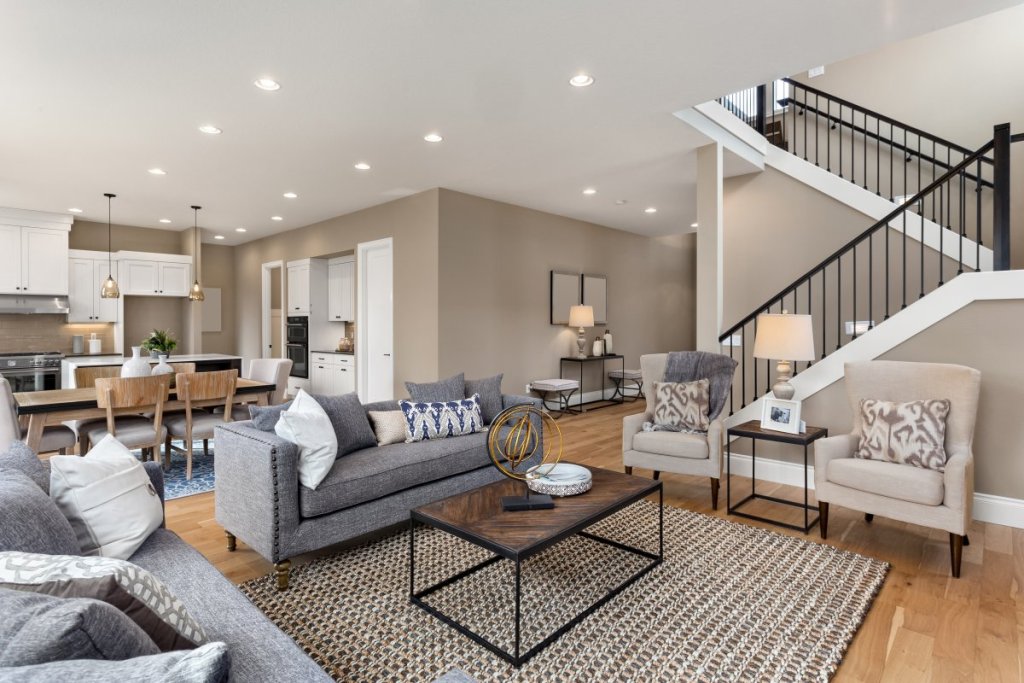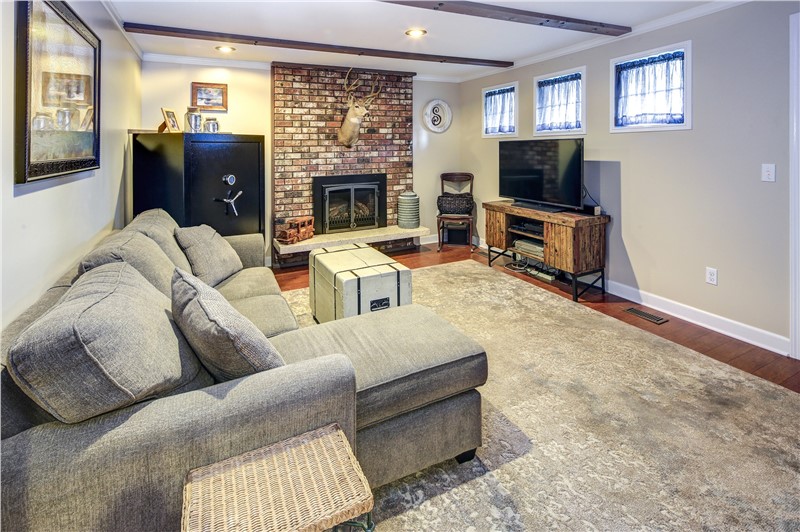
The simple answer to the question of basement square footage is actually not so simple. There are some general guidelines but homeowners who want a definitive answer to that question will typically have to ask some additional questions to get the right answer.
In general terms, residential square footage is based on above-grade living areas, meaning that only the square footage that is above ground level is counted as usable living space by governmental officials and lenders. A May 2022 article on Bob Vila's website notes that even finished below-grade square footage cannot be counted in Fannie Mae calculations as living space.
Check with Local Authorities
Some terms and conditions further define the kind of space that can be included for appraisal and taxing purposes in different jurisdictions. Below-grade space in a home can be finished as living space under most zoning laws and building codes, provided there is proper ingress and egress, windows and closets in sleeping rooms, and approved heating and air conditioning systems. Typically, doors and/or windows that permit a person to escape in case of an emergency are required for such finished square footage, whether above or below grade.
The question of usable space is also complicated, in some areas, by walk-out basements that are only partially below grade, and by appraisals that attach a dollar value to finished or unfinished basement square footage. While homes in some parts of the country typically have basements, finished basements are still relatively uncommon in many areas, and the value of "cellar space" does not add substantially to the home's assessed value for tax or resale purposes.
However, on sloping lots and in areas where land goes for premium prices, below-grade living space can be highly sought after, and finished recreation rooms, playrooms, and party rooms are the norm. While basement finishing preferences vary throughout the country, there is no doubt that basement remodeling is not only big business but also a popular DIY undertaking.
Many Options Exist for Basement Space
Basement space can be finished as a rental unit, utilized as part-time housing by other family members, or transformed for special use such as an exercise or craft room, home office, theater, den, party room with a bar, or for other unique options. Remodeling a basement for "found" living space, just like attic space, can be a more cost-effective option than building a ground-level addition.
If you're interested in talking to a local remodeling leader about creating a new living space in an existing basement, contact us now to schedule a consultation. Matrix Home Solutions is a home remodeling company that serves residents of the Chicago, Milwaukee, Southwest Michigan, and Detroit areas. We specialize in basement transformations and bathroom updates, and our design team will analyze your needs and suggest solutions to enhance the value of your property and enrich your life, all while staying within your budget.
With a record of excellent service and customer satisfaction, our work is backed by a lifetime warranty and we take great pride in our creativity and attention to detail.
Will a finished basement increase your property taxes? Perhaps, but the enjoyment you will derive from additional usable space is likely to offer even greater value, and the return on your investment can be as high as 70-75 percent, according to real estate authorities. Also, depending on your local tax assessor, the added value of your home's finished space may not add a penny to your tax bill!
Subscribe to Matrix Home Solutions's Blog





Comments